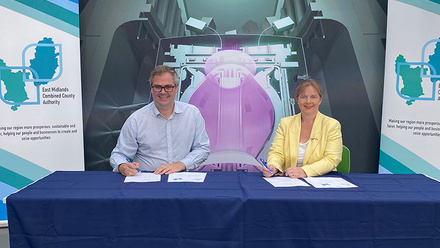IOM3 responds to consultation on the North Sea
The consultation response focuses on the government’s plans to transition the North Sea to a world-leading clean energy hub.
The Department of Energy Security and Net-zero outlined its plans to transition the North Sea to a centre of the offshore clean energy industry, including hydrogen, wind and carbon capture, utilisation and storage (CCUS). The government intends to achieve the rapid rollout of clean energy projects while maintaining existing oil and gas fields and continuing ongoing domestic fossil fuel production.
These overarching ambitions are underpinned by two supporting objectives; firstly, to ensure oil and gas workers and supply chains can take advantage of the opportunities of the clean energy transition and secondly, to take a globally standard-setting, 1.5°C and climate science-aligned approach to future oil and gas production. The plan for the North Sea will be delivered in partnership with trade unions, industry, communities and the devolved governments.
The consultation invited inputs on a number of areas relating to the transition, including how to best support communities dependent on oil and gas employment, whether there is sufficient skilled labour to deliver the government’s clean energy ambitions and how to manage interdependencies in the North Sea basin.
IOM3 submitted a response to the consultation in collaboration with our membership across the energy industry. The Institute urged the government to consider the full scope of the materials supply chain on which clean energy projects depend and include the sourcing, processing and recycling of transition materials in its plans for the North Sea. The submission noted that with an enabling policy environment, materials, minerals, and mining industries have the potential to contribute significantly to economic growth and high-quality employment in the region.
IOM3 also advised that reaching the full potential of the clean energy transition in the North Sea will require a consistent policy framework that gives clear market signals to industry, as well as rapid investment to ensure necessary infrastructure and skills pipelines are in place across supply chains.








